DALLAS MEN’S SHOW: AN UPBEAT MARKET
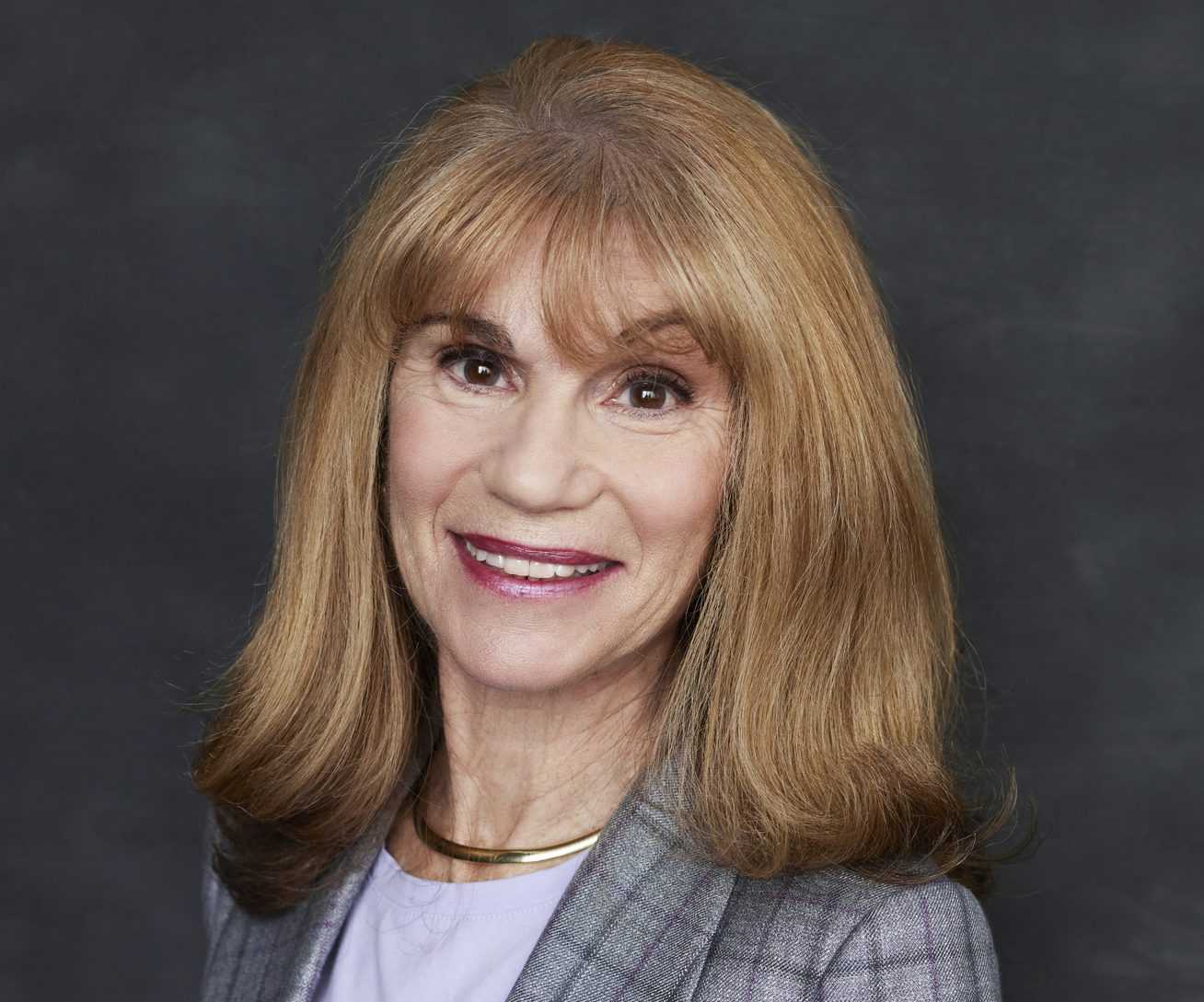
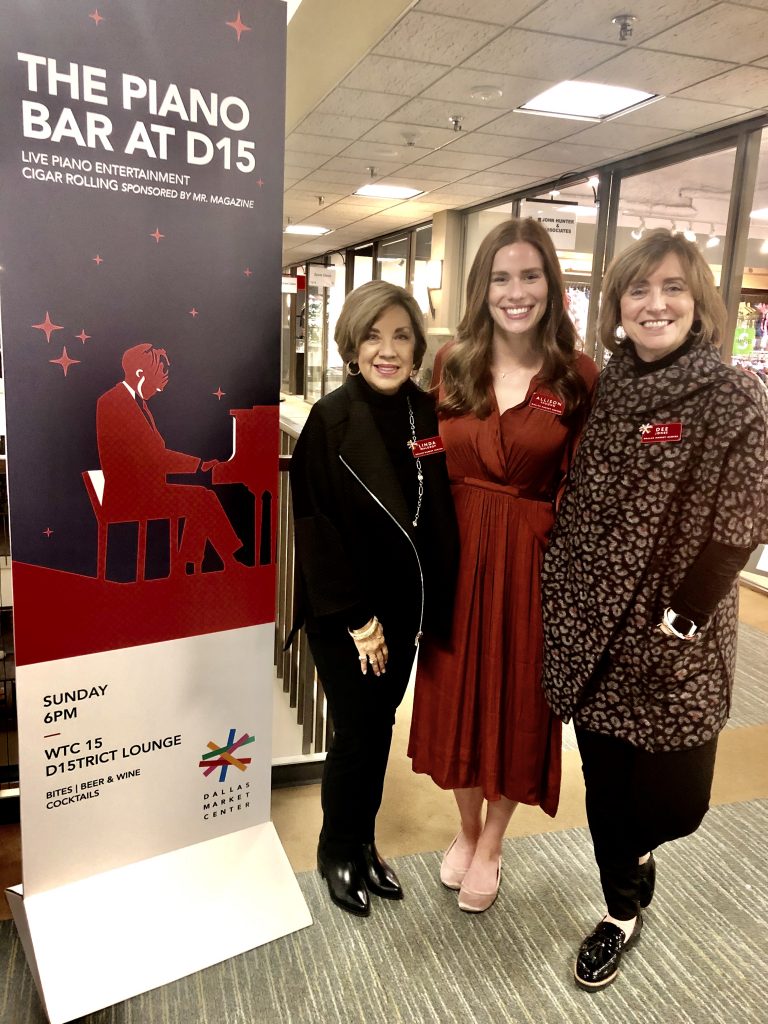
Retailers describe the Dallas Men’s Show as their “working” show —numerous merchants who also shop New York, Las Vegas or Chicago say they do the lion’s share of their writing in Dallas, appreciating the special attention they get from their long-time multi-brand reps.
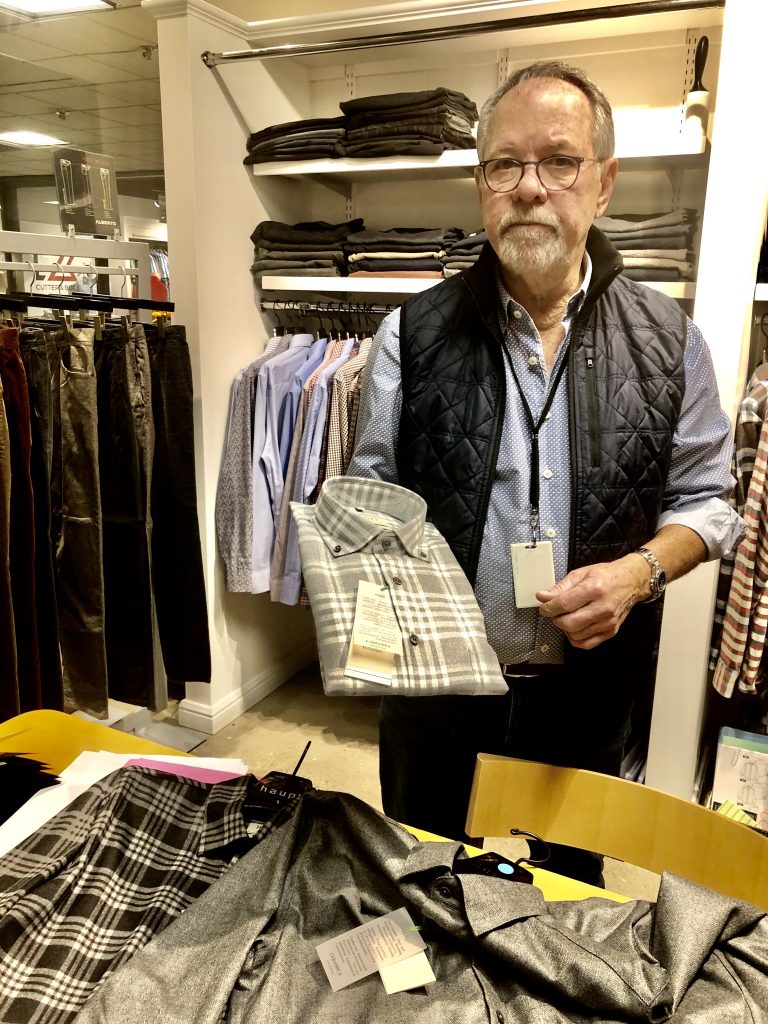
Chuck Bush is among those who truly appreciate their men’s specialty store accounts; he sells no discounters or department stores and does no direct-to-consumer online. He represents better brands including Ibiza, Alberto, Haupt, Codice (sweaters from Italy), Betenly and DeSoto (cut and sewn long-sleeve knits $175, $245 for the new luxury line in Supima that he sells to upscale stores including Rubenstein’s and Malouf’s). “Fall 2020 is about soft jackets, flannel shirts, and comfortable pants,” he tells us. We loved the eco-friendly Haupt shirts ($195 suggested retails) sold in bags made out of cornstarch and buttons from recycled bottles. Also strong: Alberto Ceramica pants ($200-$250 retails, available in-stock).
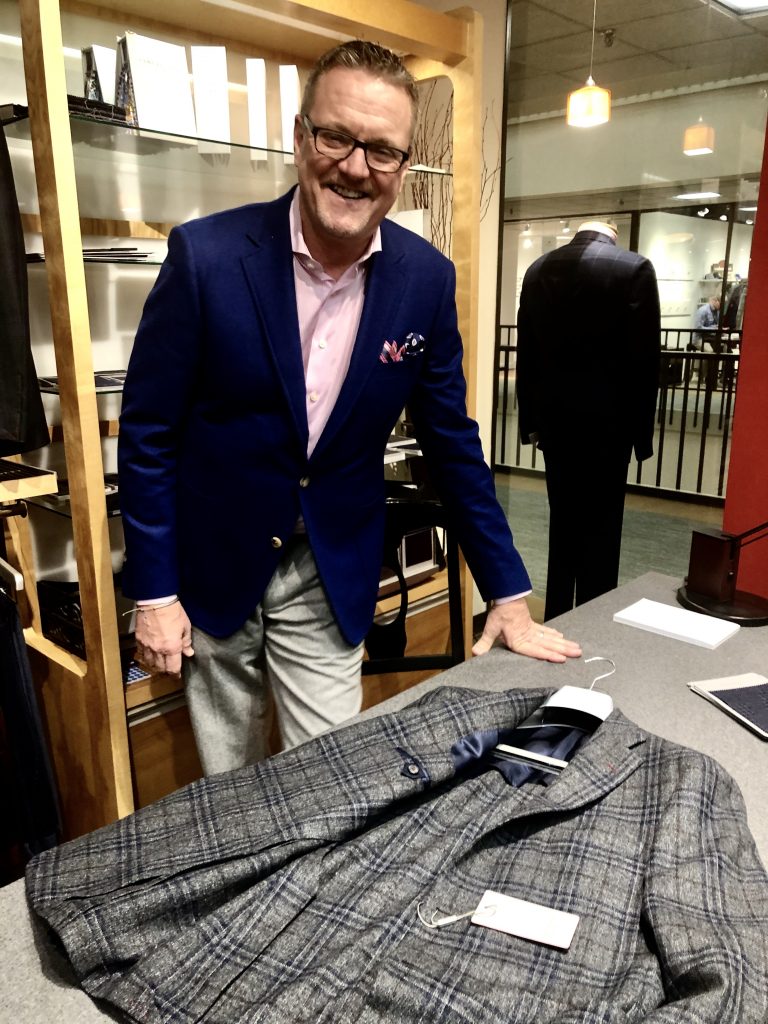
Michael Kern was delighted to sing the praises of Samuelsohn: sportscoats at $1195 are quarter-lined and French-faced. A best seller is a gorgeous blue/grey/brown plaid; another is a Loro Piana wool/cashmere-soft herringbone in six shades at $1495. Considering the lightweight and soft construction of these garments, it’s not surprising that the Southeast is Samuelsohn’s biggest territory.
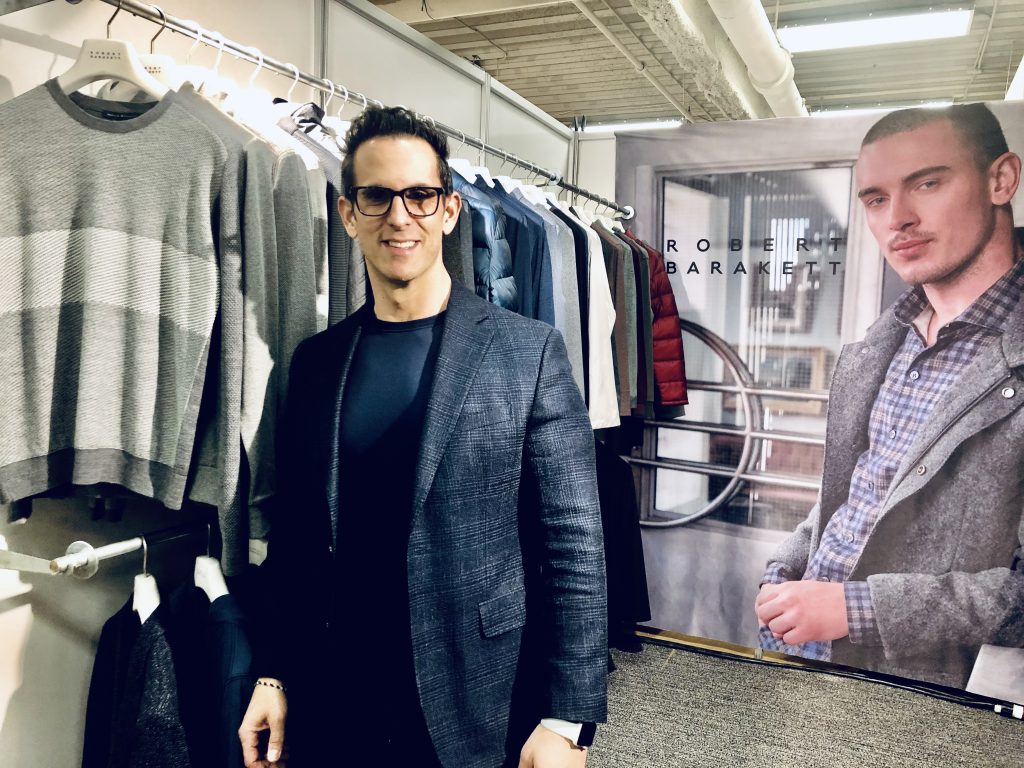
Jeff Block at Robert Barakett is doing incredibly well with luxury basics: Pima cotton interlock knits (long sleeve) using special washing techniques are selling in 20 colors, $60 cost for a suggested retail of $125. Block also showed a perfect jogger ($125 suggested retail) and beautiful lightweight sweaters in pima/poly blends.
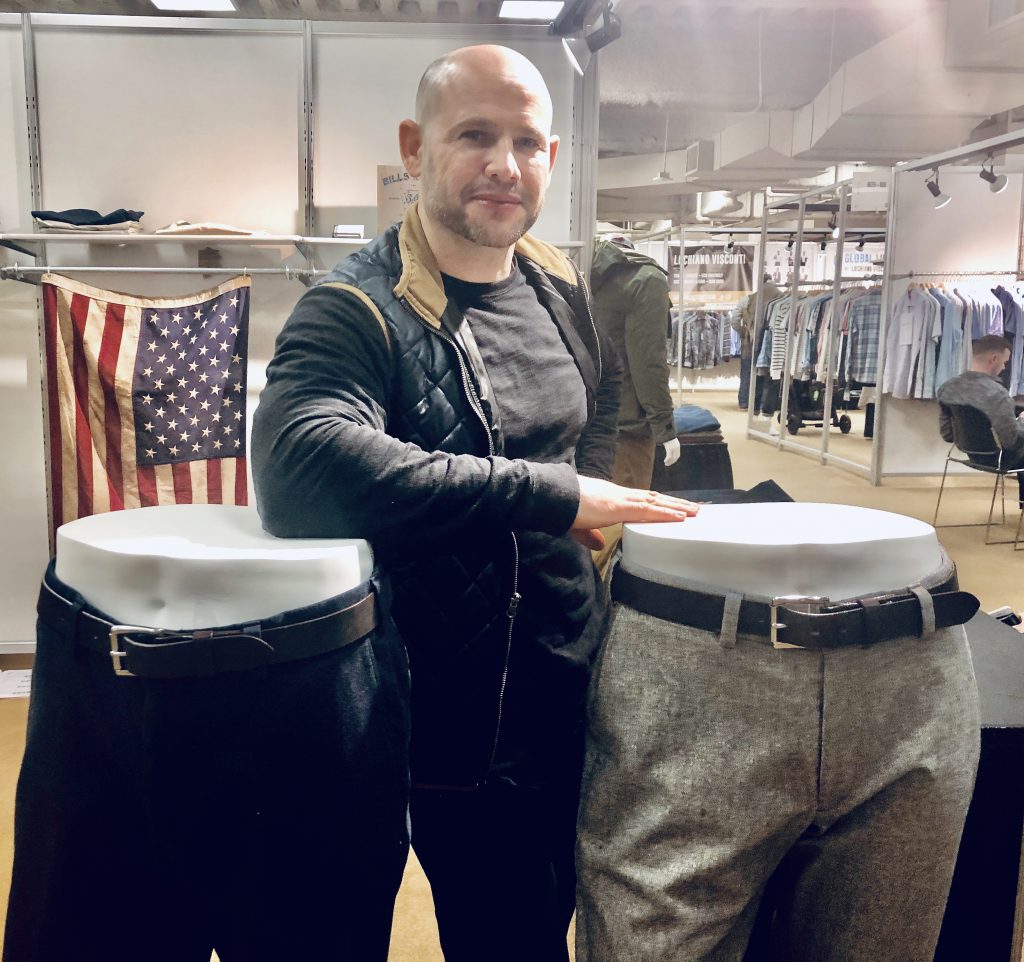
At Bills Khakis, Jarrett Reicher explained that the pants collection ($155-$195 retails and still made in the USA) has the same DNA as the original brand: stretch fusible waistbands, pigment-dyed, two fits (classic and straight), count & fill. They’ve also added a premium collection at $220 suggested retail featuring tech fabrics and ultra-soft washes that upscale specialty stores are loving. Selling best for fall 2020: brushed mini-herringbones, Italian 18-wale cords, classic 9-wale cords and stretch flannel.
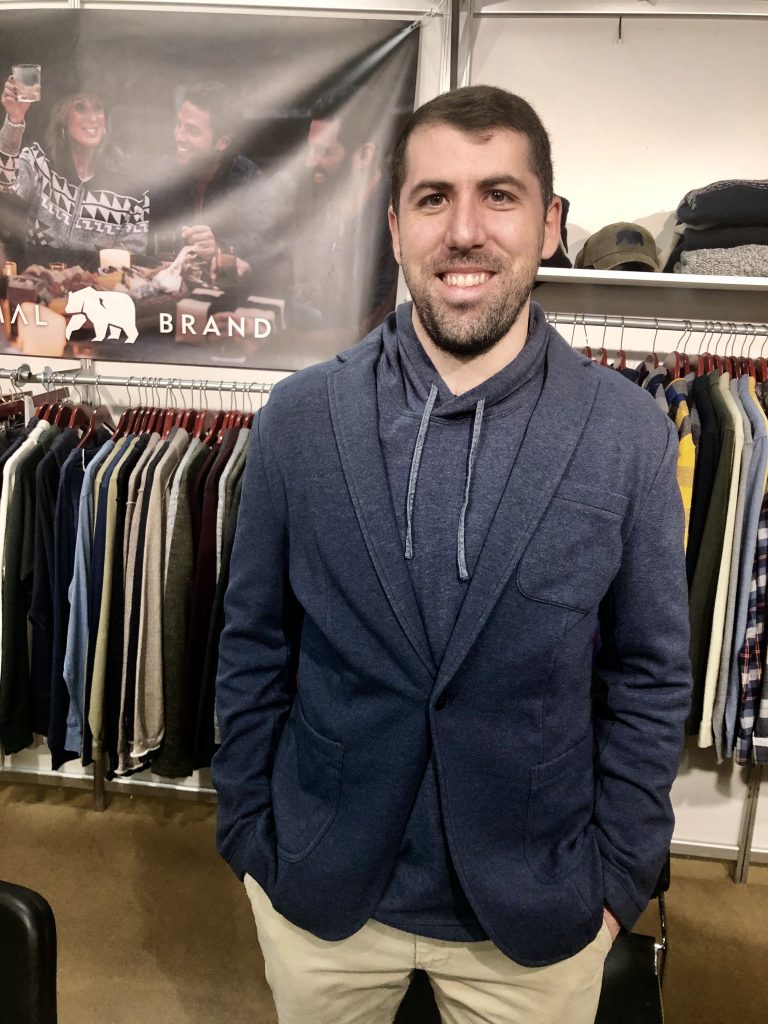
Founded 2015 in St Louis by an investment banker who couldn’t find anything normal to wear, The Normal Brand is a well-priced, comfortable, and indeed truly normal collection. Quarter zips in a soft poly/cotton/spandex blend with a silicon wash are $68 retail, henleys and hoodies are $58. A Sherpa-lined quilted jacket is $155 and a zip bomber is $125. Also some great chore jackets and blazers, the collection has been picked up by golf shops and outdoor retailers in addition to menswear stores. A preview of the women’s line to come featured fabulously soft knit dresses, sweaters and bomber jackets, all well priced and truly comfortable.
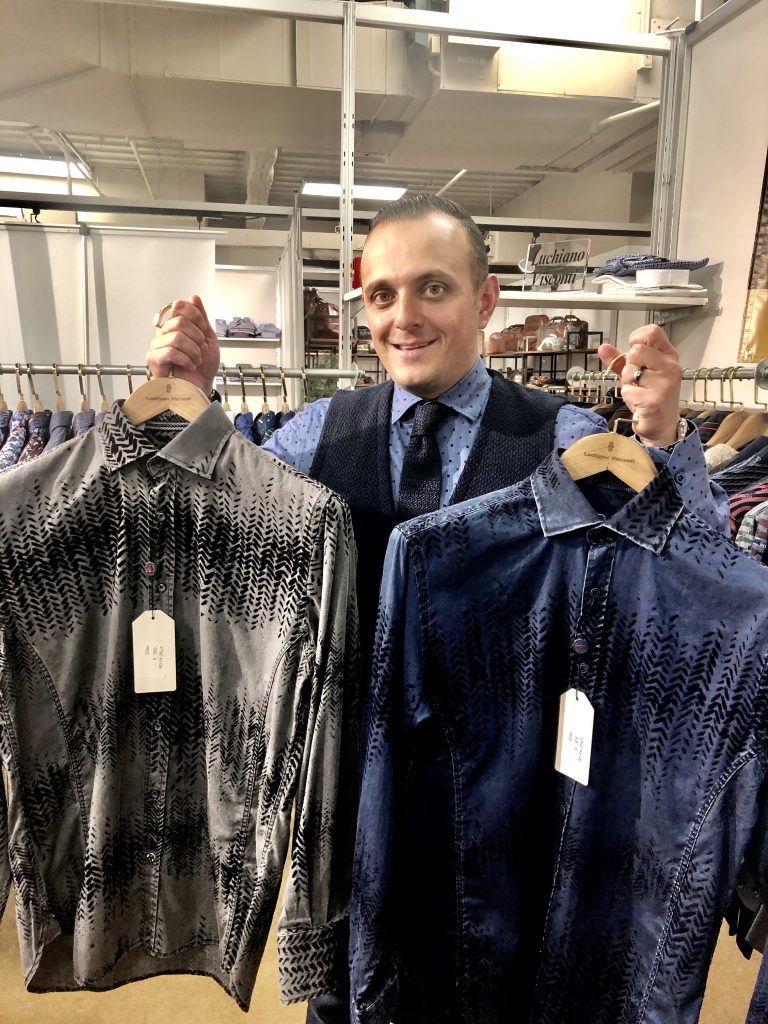
Sasha at Luchiano Visconti did great with a super-soft travel coat, $135 cost, available private label, as is their travel pant at $39.50. Also booking well, their denim-friendly flocked shirt, a hot item at $46 cost.
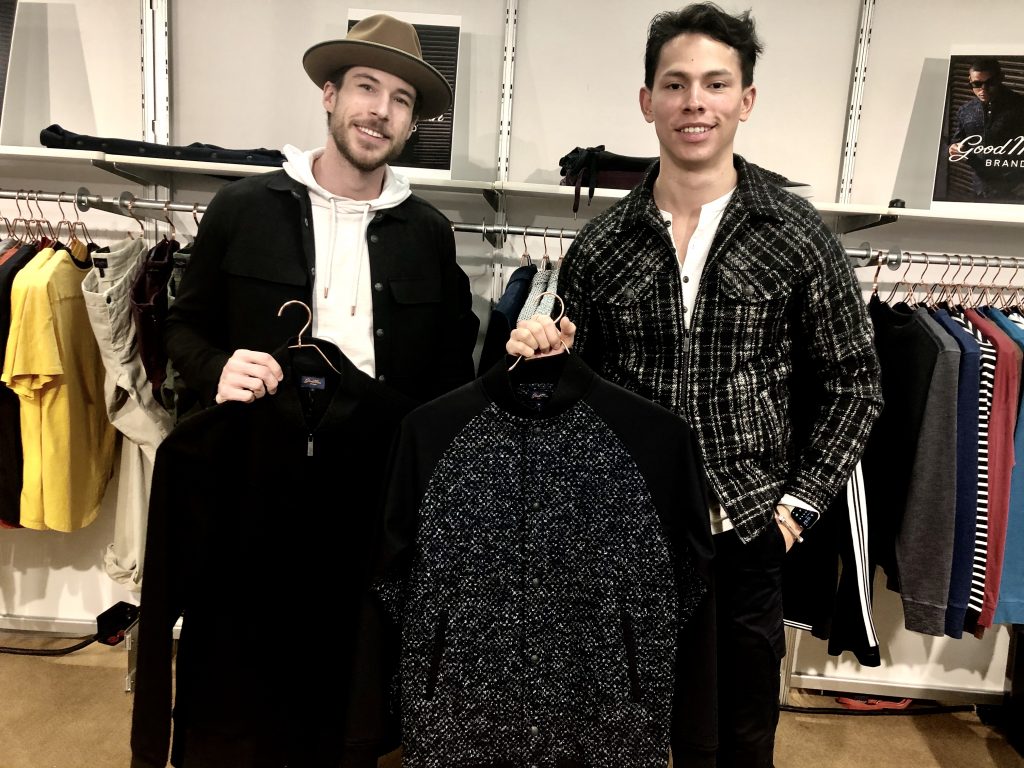
At Good Man Brand, better specialty stores were ordering twill pants with carbon peaching, soft hoodies with rose gold tips, dressy performance pants and stadium jackets in tech fabrics, superfine merino knits, and great layering pieces including chore jackets and cool cardigans.
Mark D’Angelo at Liverpool had great reaction to a new shawl collar cardigan in a soft cotton/acrylic blend at $98 retail and a crew at $79. A surprise hit for this hot denim brand was the travel suit in a rayon/nylon/spandex blend: $129 for the jacket (with inside zip pocket) and $98 for the pant. “For young guys, clothes need to have value,” sums up D’Angelo, adding that many stores would benefit from a few younger sellers.
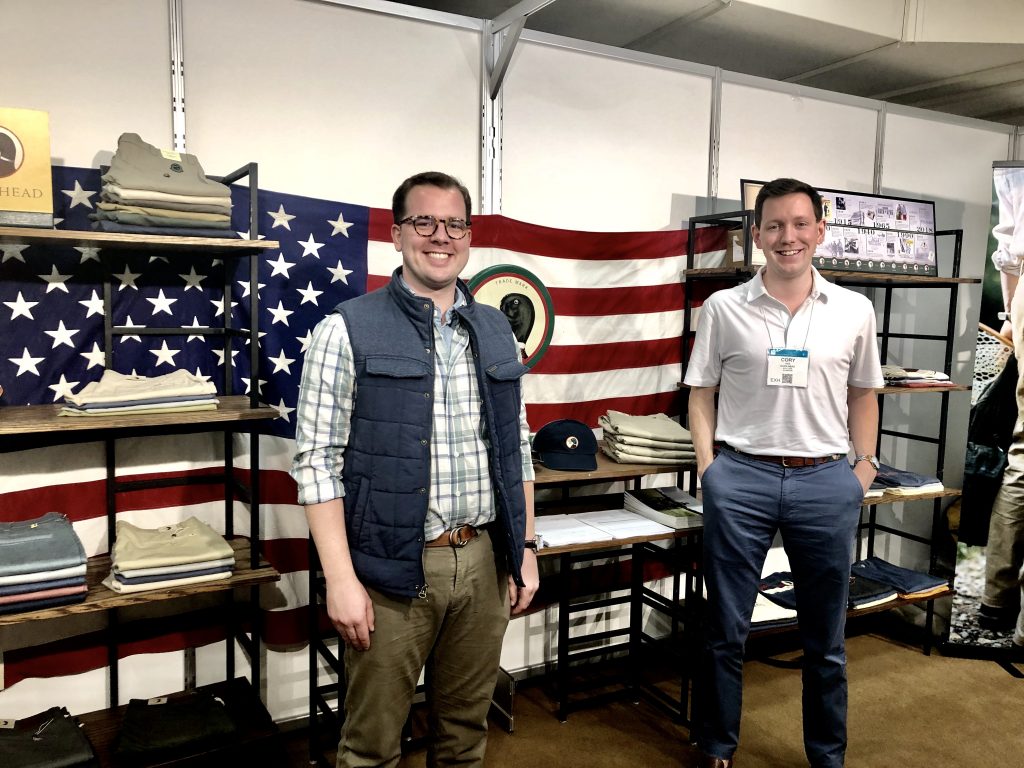
DuckHead claims roots back to 1865 when two brothers (Civil War veterans) took army tent material and used it to make heavy cotton pants. (This type of heavy cloth was known as duck cloth, hence the name…) The brand gained its star status in the 1980s and ‘90s among college students in Oxford Mississippi. Rescued out of dormancy by Oxford Industries in late 2016 and now in 150 doors (200 by fall ’20), the brand is under the creative direction of Bill Thomas, who explains that his first job upon joining the brand in 2018 was to perfect the product. “Reviving a brand with bumps and bruises is a challenge but DuckHead is a genuine heritage brand and upgraded workwear is getting some buzz. We’re reviving our marketing on college campuses (we did 14 Game Day events with retailers) and, in addition to men’s specialty stores, we’re selling upscale outdoor stores. Finished bottom pants in five-pocket and traditional models at under $100 are appealing to retailers. And interestingly, while five-pocket is still outselling traditional by 3:2, the traditional model is gaining ground. Apparently, young guys don’t want to dress like their dads.”
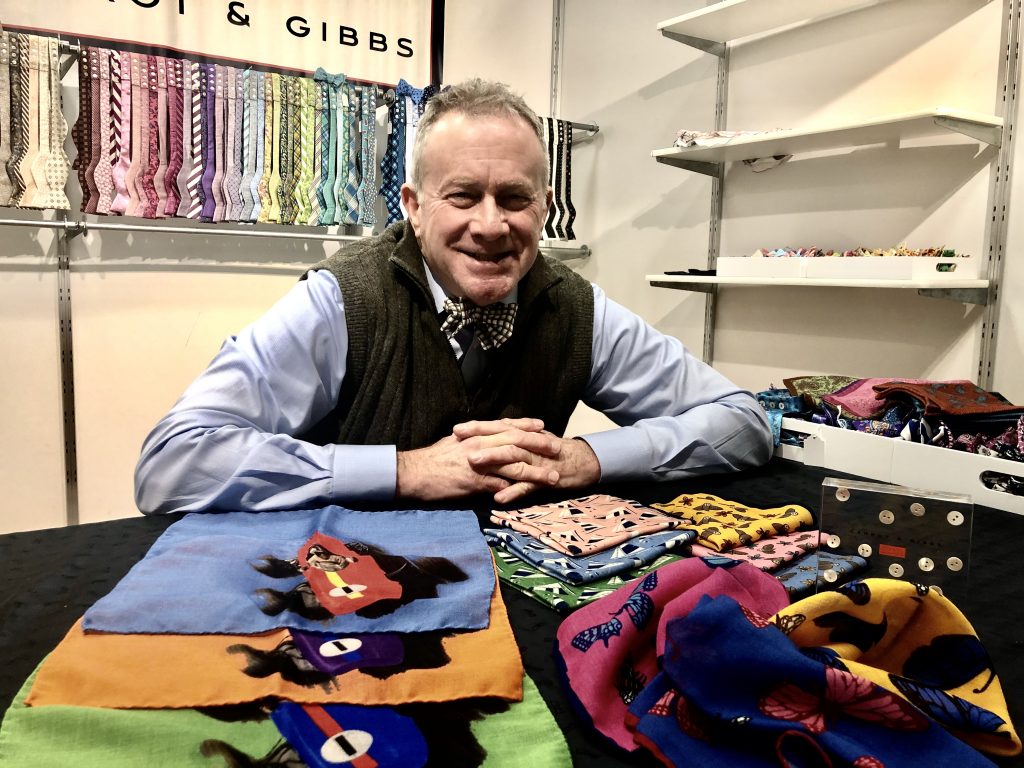
We loved Neil Borin’s (Carrot&Gibbs) great selection of pocket squares, made in Como in a 75% wool/25% silk blend. ($28 cost for retails between $70 and $125.) He’s also got a tasty selection of bowties, made by hand in Colorado by seven sewing specialists. Retails on bows are $145-$185; braces cost $75 for a $185 suggested retail.
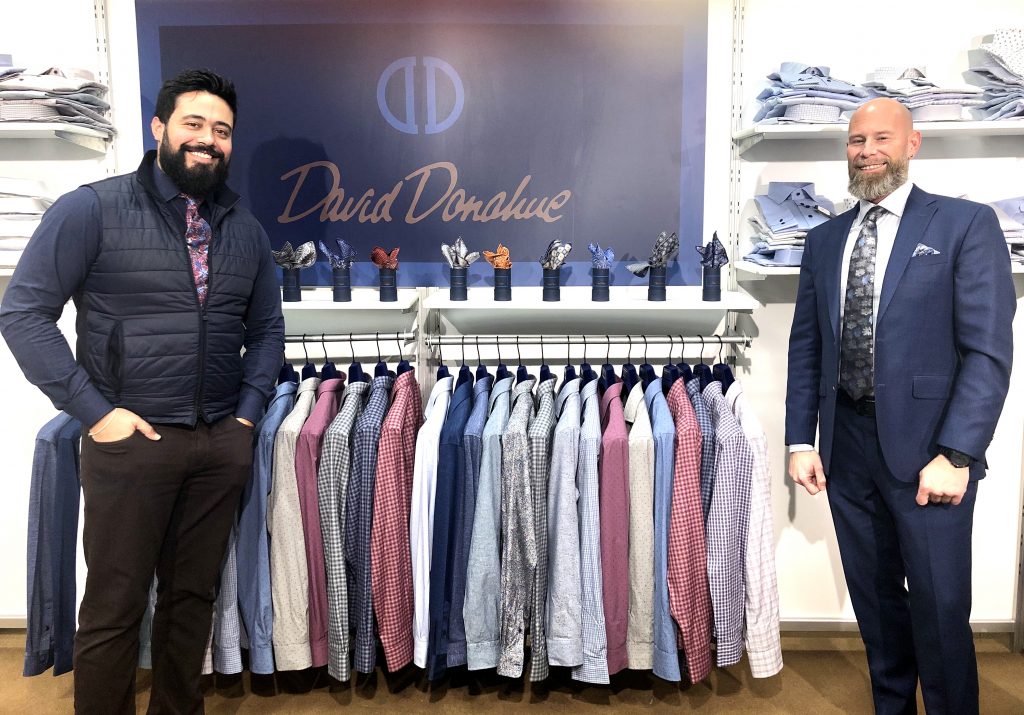
Mario and Wesley showed us some fabulous David Donahue shirts, most at $145 retail. (Their best seller is a light blue oxford with modified spread collar.) They have a small offering of French cuffs so we discussed the mystery of cuff links: always a great gift but rarely worn. An in-stock program of formalwear shirts ($145-$165) has been highly successful, as has non-irons at $145, about 10 percent of the business. Interestingly, trim-fit shirts are now 60-70 percent of Donahue’s business, but as Mario notes, “our trim fit is plenty big…”
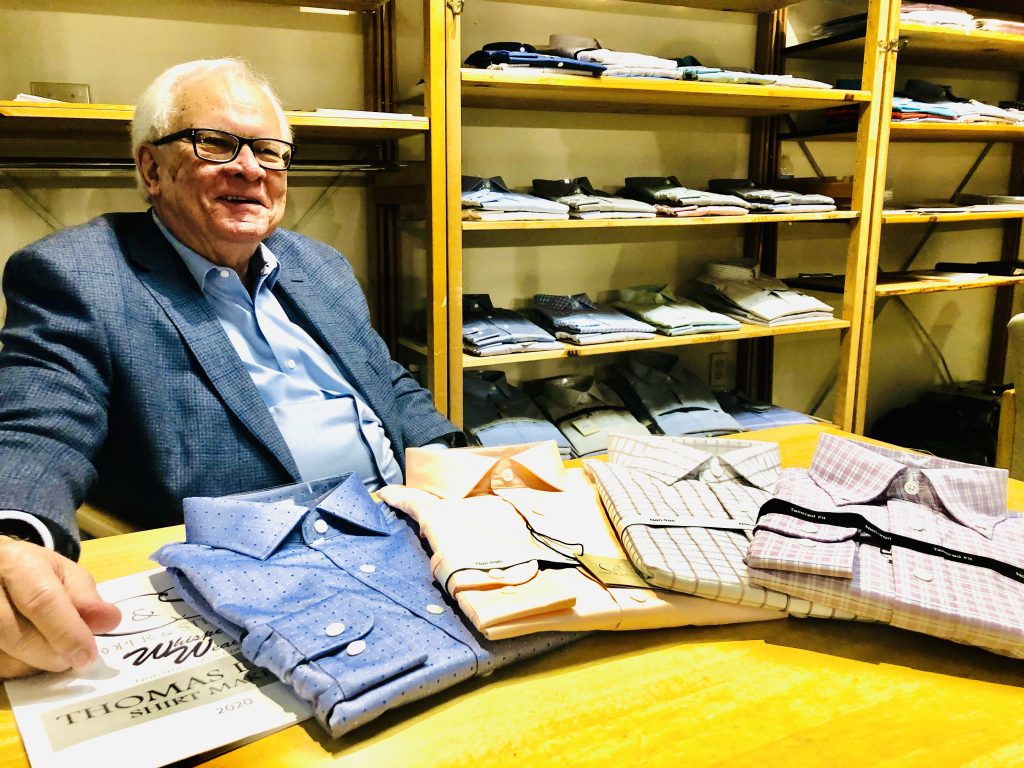
Jim Bourg showed a great collection of Cooper & Stewart non-iron cotton, 80s two-ply shirts at $75-$95. (A mini-herringbone tone-on-tone was a top seller.) Noting that better specialty stores are moving away from under-$100 tickets, they now offer private label royal oxford fancies at $125 retail. Under the Thomas Dylan label, they also offer a 60/40 premium reverse blend.
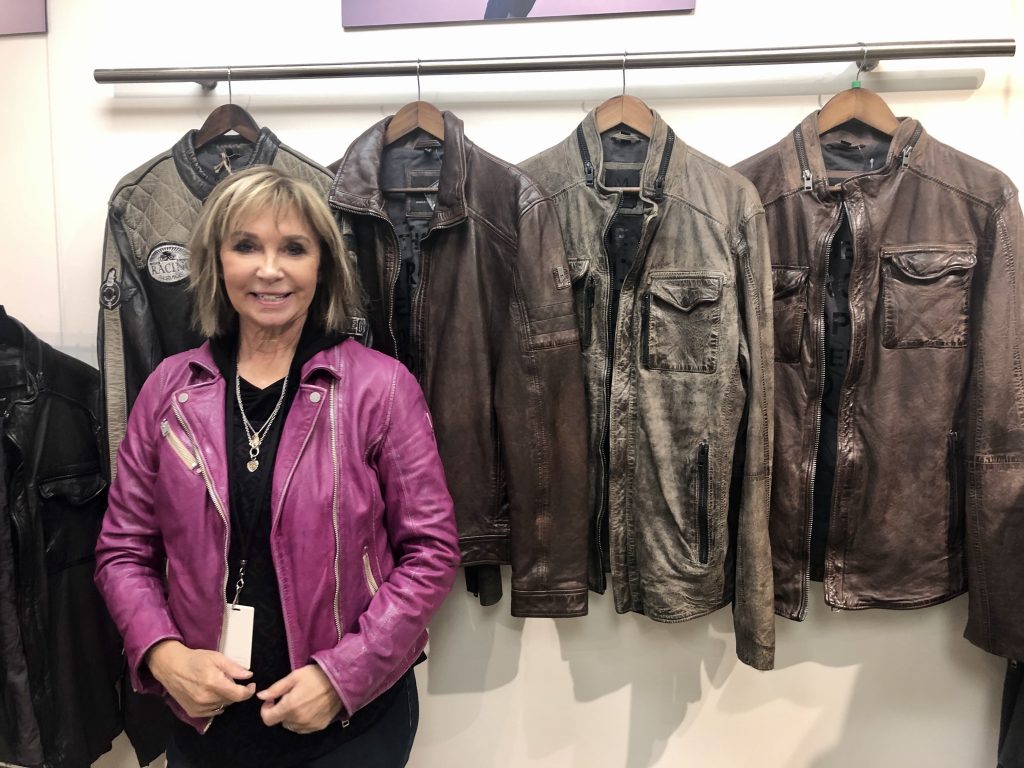
At Mauritius, Gina Doskocil showed us beautiful well-priced men’s and women’s leather jackets from Pakistan. The women’s collection featured buttery soft lambskins in numerous styles; prices averaged $120 cost for $298 suggested retails. In men’s, we loved the jean jacket looks, shirtjacket styling, bikers with zip-out hoods, hooded styles with zip-out linings. The #1 color in men’s is an elephant gray, followed by black, brown and dusty blue.
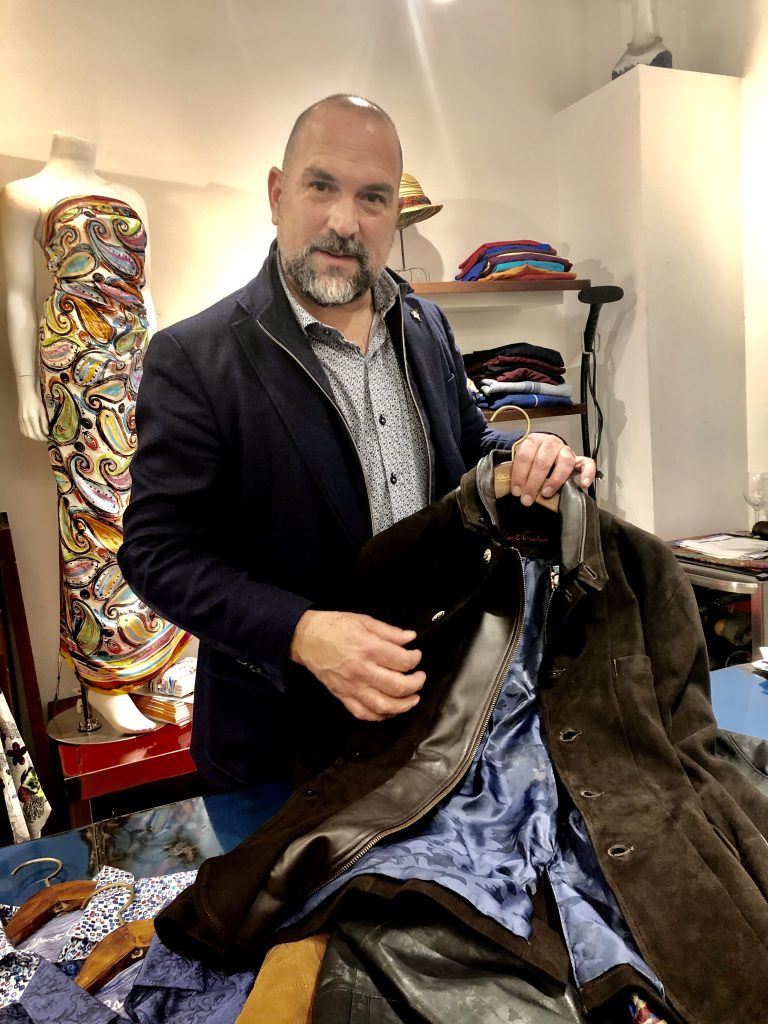
Ken Power at Robert Graham showed fabulous prints and outerwear, not to mention some sensational women’s dresses.
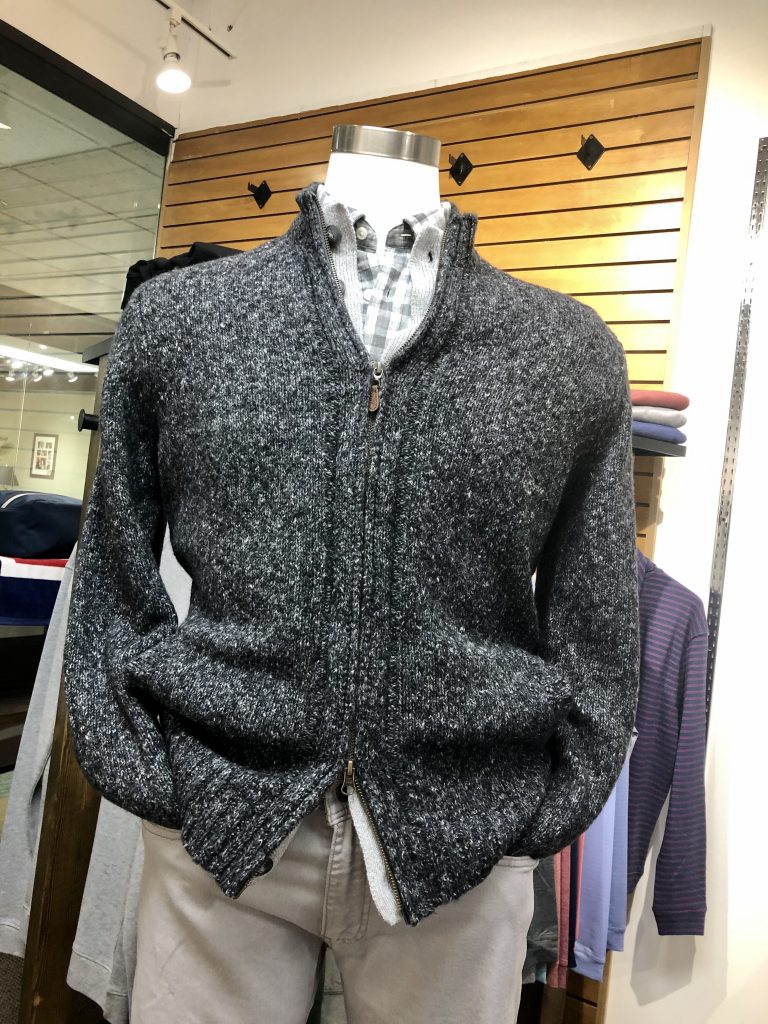
Johnnie-O specializes in fun sportswear for golf, beach, and all kinds of play. Under the direction of Chris Knott for the past two years, the brand has evolved into a complete collection: wovens are 128-$148, pants average $145 (we loved the cords in three inseam sizes), and polos are $70-$80. Special items booking well for fall include a $375 quilted barn coat and fancy sweaters. (We loved a double zip model in cotton/yak/viscose at $248!) Also of note on the shirts: they’ve trademarked a hidden “tweener” button between the first and second buttons and they’ve created their own models to be worn untucked.
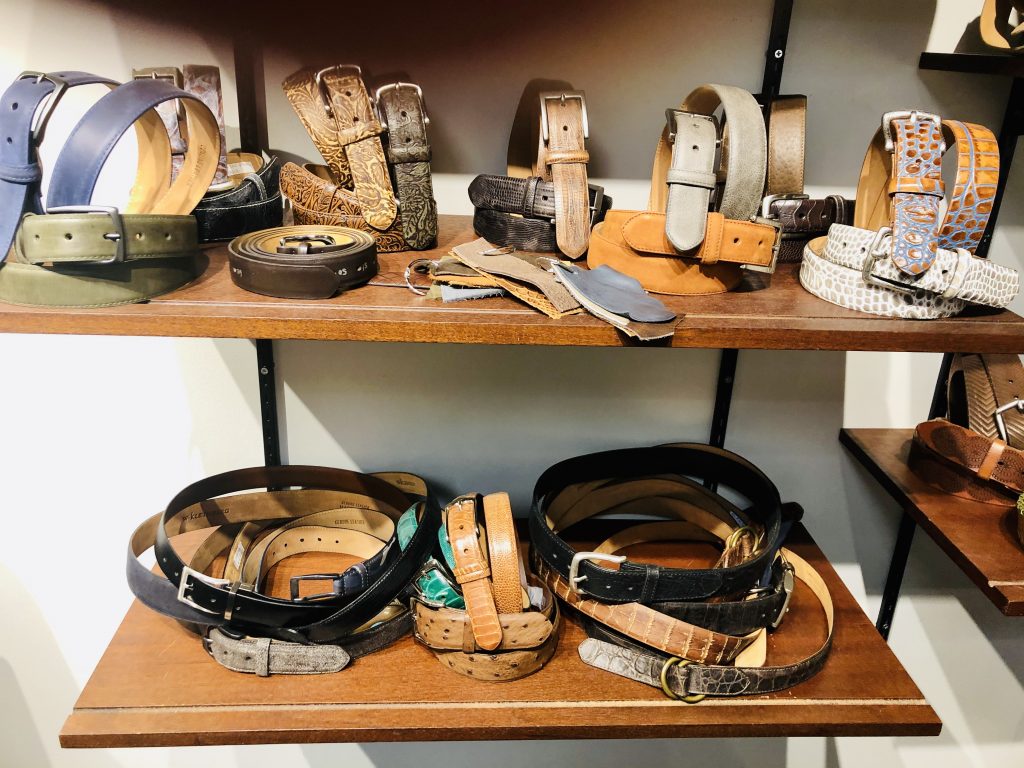
Ross Collier was busy selling W. Kleinberg, among the top luxury belt brands in the country. He does exceptionally well with genuine exotics in the Southwest, especially crocodile ($350 avg depending on width) and American alligator ($525). Also popular: billfolds in ostrich ($300) and alligator ($450).
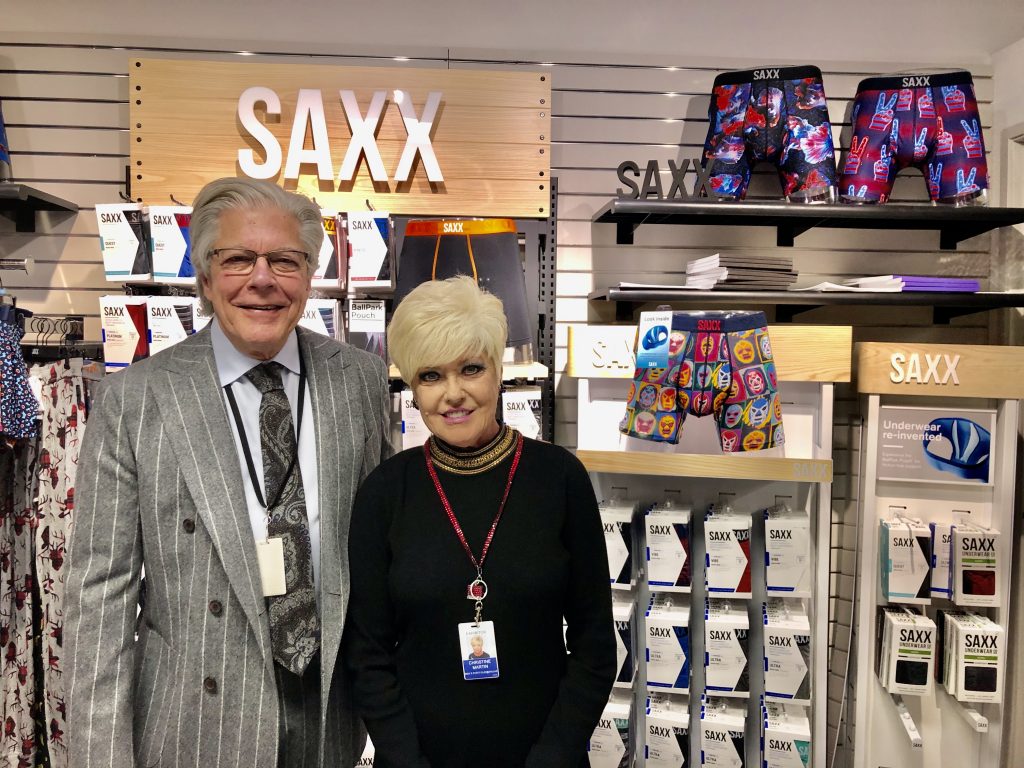
John Castorr from The Men’s Portfolio (shown here with Christine) showed us U.S.-made luxury socks that stores can private label at $25 ($9.50 cost on the mid-calf, $10 on the over-the-calf). Upscale stores are opting for a beautiful blend of mercerized cotton/wool/cashmere. The Men’s Portfolio also offers a volume-priced belt collection that stores can private label at 62 points. (The store logo can be engraved on the front of the fixture and the interior of the belt.) Also of note: Saxx underwear has added great lounge and leisurewear ($135) to their collection of sexy underwear ($32.50).
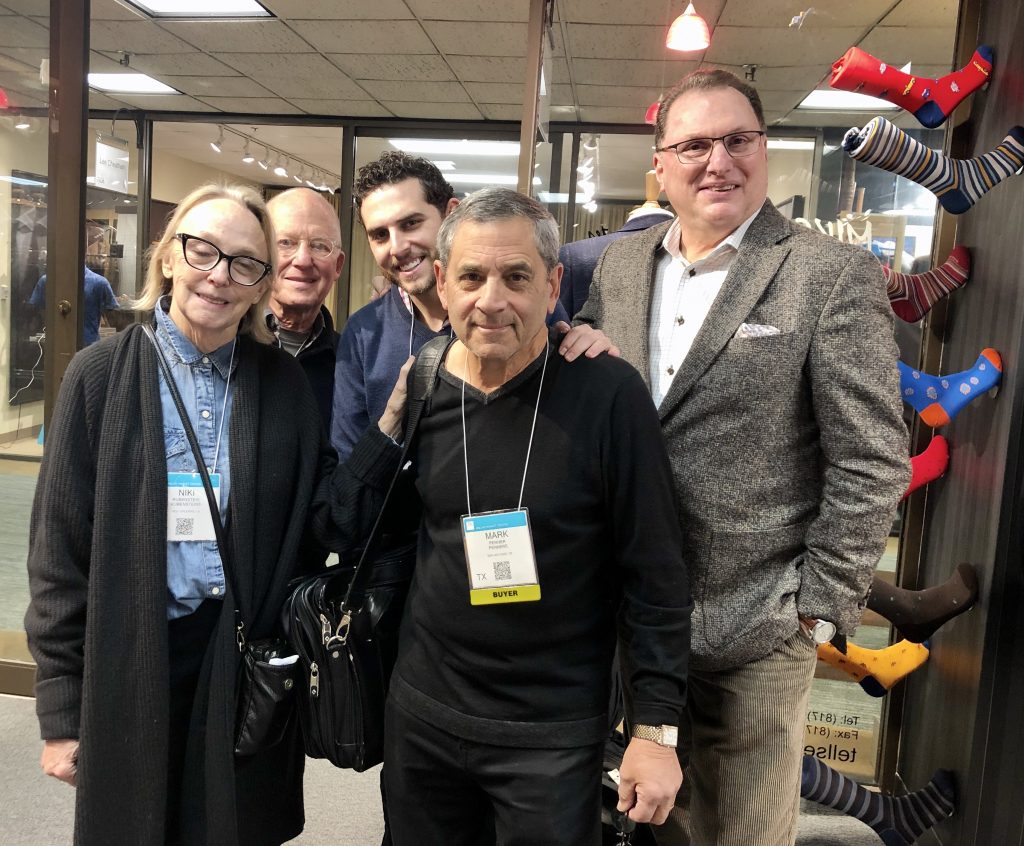
Mike Tell, celebrating almost a quarter-century in the business, does really well with Jack Victor. With the largest manufacturing facility in North America, Victor employs 1100 workers who produce what Tell describes as the best tailored clothing value in the industry. Booking well: soft sportscoats in the $595-$895 range, deco shades featuring brown, nested suits that work as separates. Tell points out an irony: “Stripes are not selling but fancy plains with a vertical pattern are booking well.” He also sings the praises of Riviera’s travel pant, in stock in 11 colors, washable, dryable, hidden zip pockets, $185 retail. For the perfect gift, Tell suggests Marcoliani luxury socks out of Italy, available in gift boxes of three, six or 12. Also doing well: their luxury no-show socks in 3-ply cotton with hand-linked toe and heel gripper to keep them in place, $21.50 suggested retail; fixture included for three dozen or more.
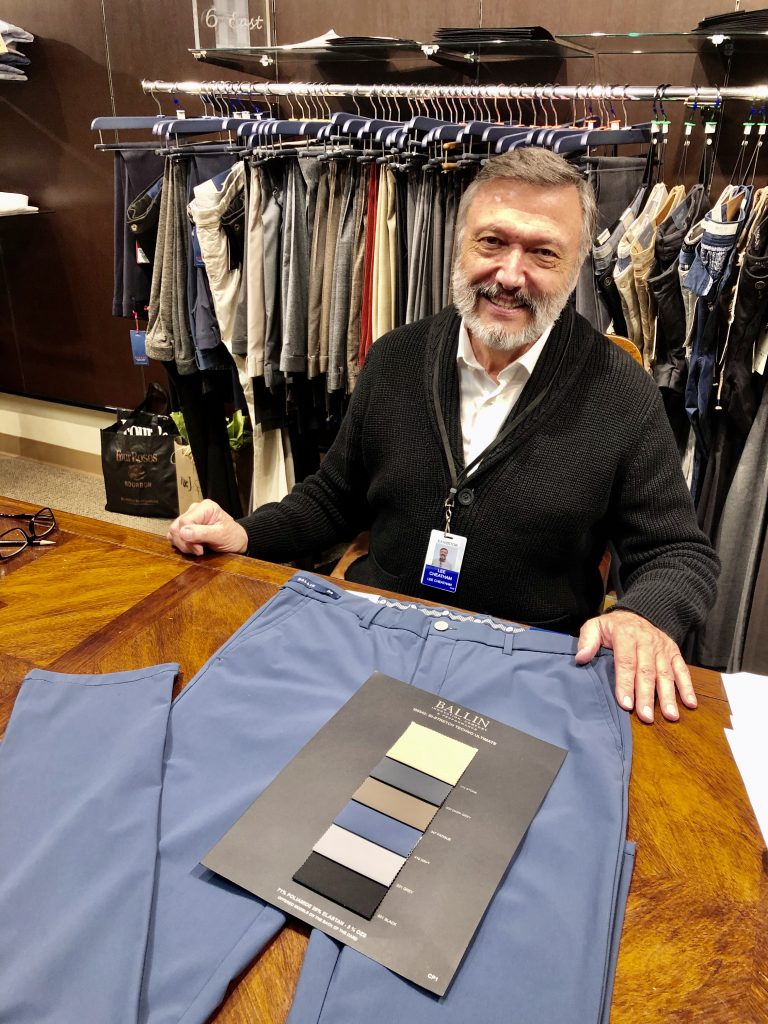
Lee Cheatham shared a great hot item: Ballin’s ultimate travel pant, in a four-way stretch techno fabric with special buttons, zippers, interior drawstring, mesh pockets and many other functional details, $75 cost for a suggested retail of $185-$195. According to Cheatham, retailers are also loving 6 East, Ballin’s more upscale collection in luxury fabrics, (with an in-stock program that’s actually in stock!) Also growing for next fall: their IC&P division featuring innovation, comfort, and performance, quintessential buzzwords for our era.
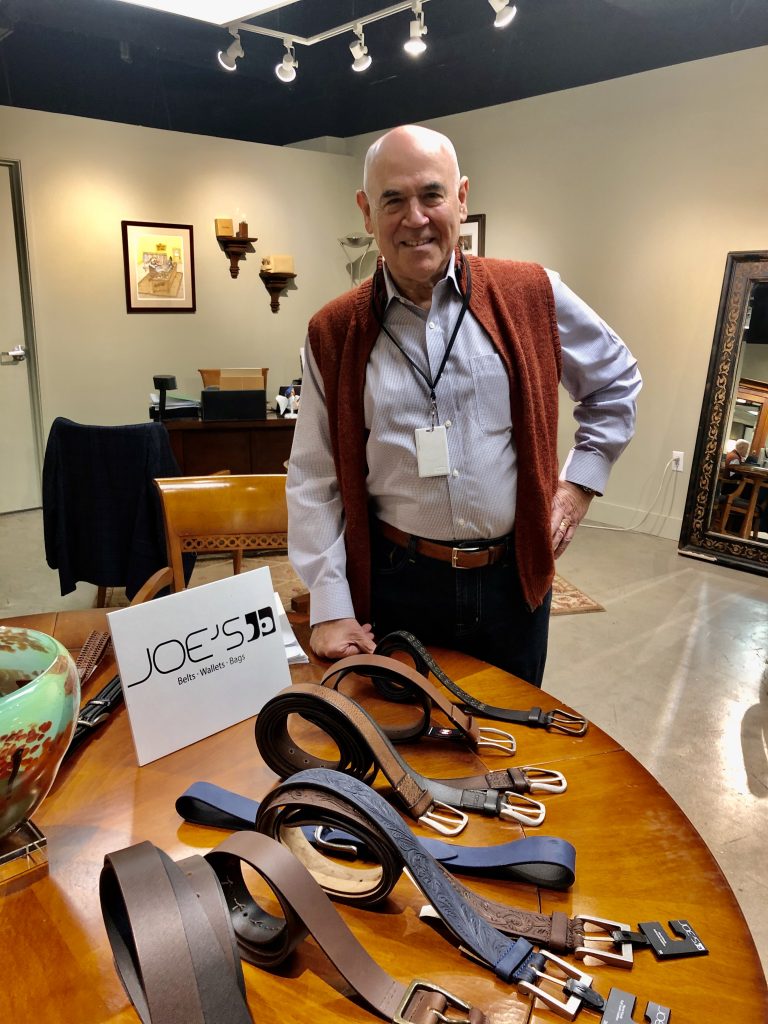
Harold Master is doing well with his Joe’s collection of belts, bags, and wallets.
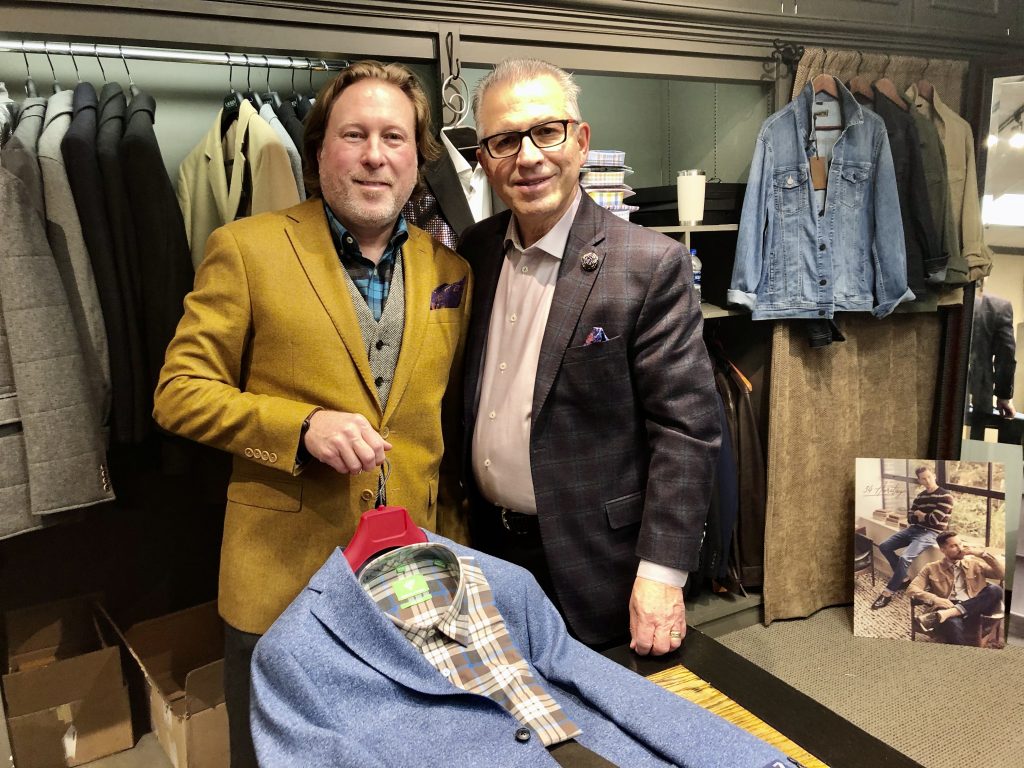
John Smallwood also had a great show: pairing a TailoRed half-canvas sportcoat with a soft Forsyth shirt and 34 Heritage five-pocket pants (or their top-selling knit jeans) creates a perfect contemporary men’s outfit and an $800 sale for retailers! “The retailers doing well are those who take some chances, who get men out of their comfort zones. Too many stores lack confidence: they come in and buy what sold last year. They need to buy special window pieces that will inspire guys to try something new!”
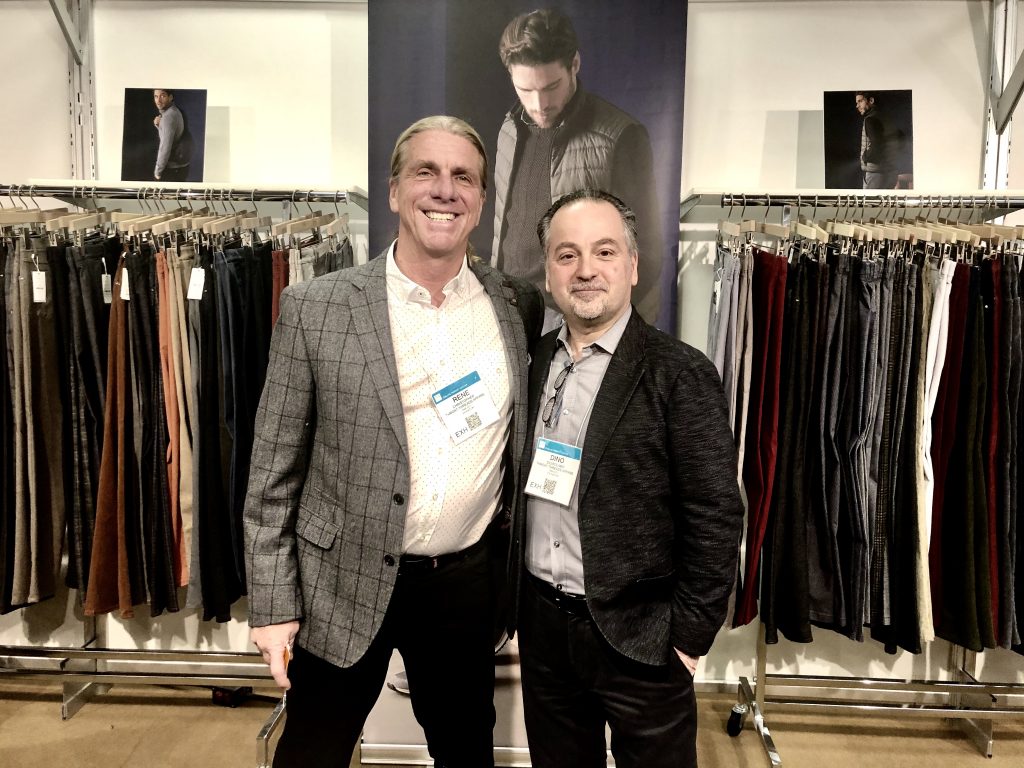
We had another great discussion with Rene and Dino from Brax, this one on succession planning. Rene provided several examples of how smart specialty store owners without kids in the businesses are mentoring their top employees to ultimately come in as full partners. “They teach them the business and agree to sell them the store at a fair price in a certain number of years. Many stores that have disappeared might have been saved in this way!” Dino pointed out that among his 100 recent appointments, not one retailer said business is bad. “Buyers are actively looking for new product. Some are making money for the first time. The men’s business is truly fun again!”
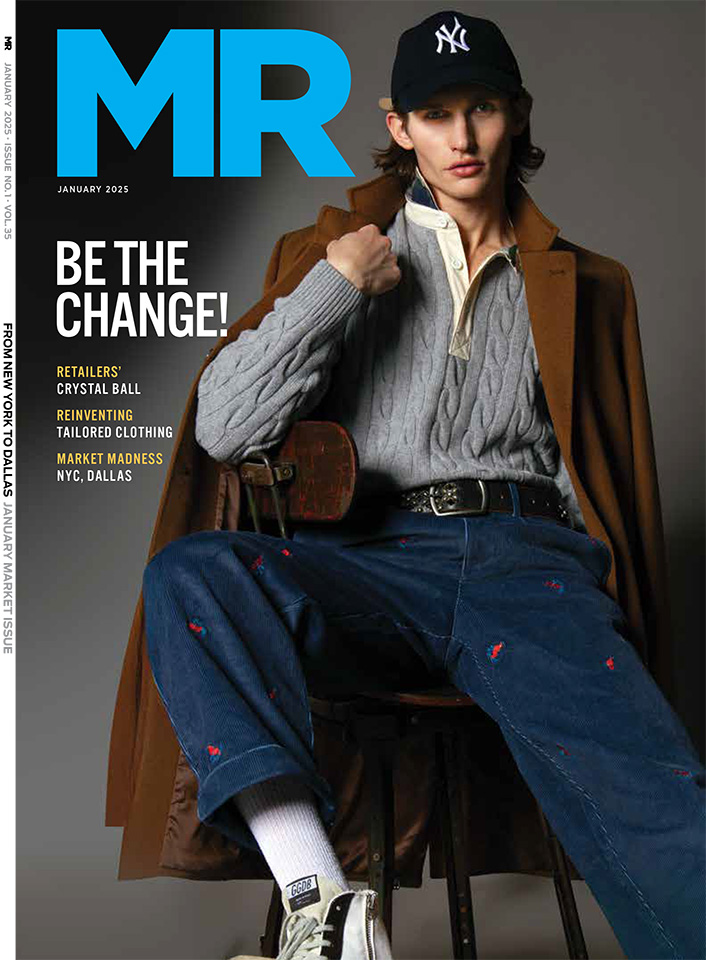


Karen,
Thanks so much for coming to the Dallas Men’s Show. We have the best customers and some of the best lines all under one roof at the beautiful Dallas Market Center. And it’s “always” sunny and much warmer than the other shows in January-February!
Neil Borin at Carrot & Gibbs continues doing it uniquely and consistently well .